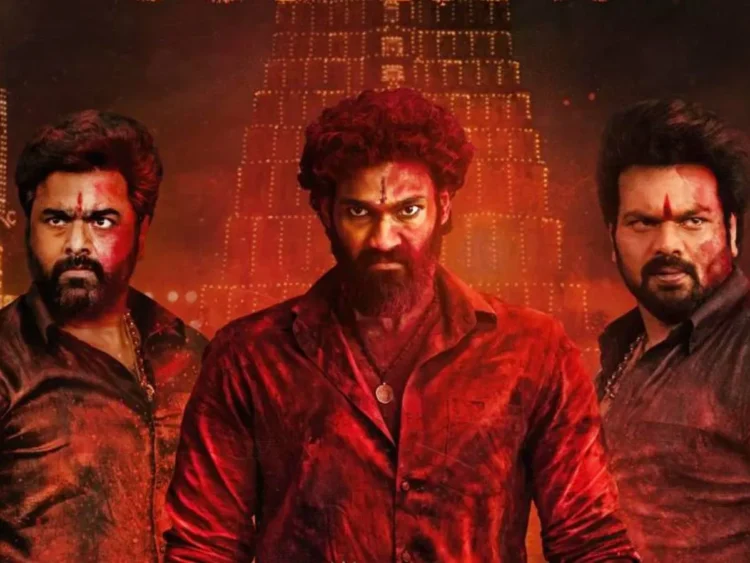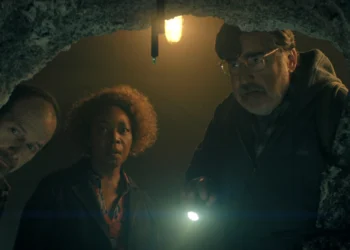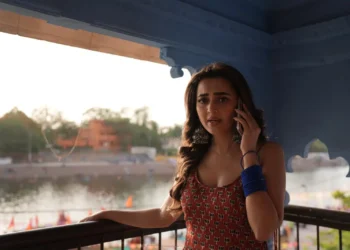Bhairavam signifies the return of Bellamkonda Sai Srinivas to the screen after a two-year break, while Manchu Manoj makes his comeback after nearly five years. This movie is a remake of the successful Tamil film Garudan (2024). Although the fundamental plot remains true to the original, several modifications have been made to align better with Telugu cultural tastes.
Story
Sreenu (Bellamkonda Sai Srinivas) serves as the loyal friend to his childhood companions Aadhi (Nara Rohith), who manages a transport business, and Gajapathi Varma (Manoj), a landlord facing financial difficulties. Their steadfast friendship is put to the test when a betrayal occurs.
A corrupt minister (Sharath Lohitashwa) devises a scheme to seize the lands of the Varahi Amma temple in Devipatnam, situated in Andhra Pradesh’s East Godavari district. He discovers that the land documents are held by one of the friends. When his assistant (Ajay) approaches one of them with a nefarious offer, their lives are turned upside down.
Can Sreenu protect the temple’s lands? Will Aadhi and Gajapathi support him in this challenge?
Performances
The acting performances are commendable overall. Bellamkonda Sai Srinivas presents a measured performance, recognizing the limitations of his character. While he occasionally plays to the crowd, he mainly adheres to the character’s context. Nara Rohith impresses with a mature, subtle performance, and his appearance complements his role well. In his return, Manchu Manoj plays a significant part, though he could benefit from moderating some of his more dramatic expressions. Aditi Shankar delivers a solid debut, fitting her role seamlessly.
Behind the scenes
Music isn’t a standout aspect of the film. Apart from the song “O Vennela,” the rest fail to make a notable impact, and the background score isn’t particularly effective. The production quality and technical aspects are commendable.
Director Vijay Kanakamedala manages the remake effectively, honoring the original while infusing it with grandeur and brisk pacing. Cinematographer Hari K Vedantam beautifully captures the film’s rural aesthetics. Editor Chota K Prasad ensures the film maintains a tight and engaging runtime.
Final Analysis
The narrative delves into themes of friendship, loyalty, and betrayal, incorporating a strong devotional element within the rural drama. Known for Naandhi, director Vijay Kanakamedala enhances the story’s grandeur, moving away from the more grounded and emotionally resonant tone of the original.
Bhairavam maintains the original’s structure and screenplay, though the initial segments are less engaging. The story picks up interest once the conflict between Nara Rohith and Manchu Manoj intensifies. The interval sequence, reminiscent of Kantara, is executed well. After the interval, the film’s appeal grows, benefiting from the strength of the original material.
This version is clearly aimed at mass audiences, and thanks to its core narrative, it succeeds to some degree. However, the film feels like a mixed bag—partially captivating yet also somewhat disappointing—as director Vijay Kanakamedala attempts to give the rooted narrative a more commercial gloss thus diluting the core essence of the film. A one time watch if you love the massy elements and friendly conflicts.























